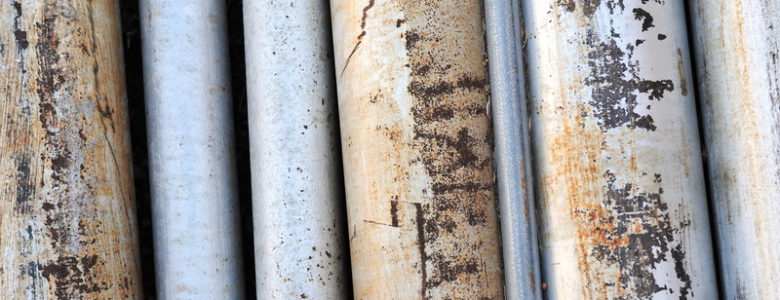Like the aqueducts of old that were used to bring water into towns and early piping designed to reduce contagion by carrying effluent away from civilization, pipes have long provided a safe and convenient means of transporting liquids, gases, and even some solids. These days, pipes are many and varied, supplied for a variety of uses.
As such, there are many factors that could lead to pipe failure, and specifically, pipe erosion. It may depend on the piping materials and the contents moving through them. It could be related to environmental factors or whether or not proper pipe supports and wear pads were used.
In addition, erosion could occur both inside and outside of pipes. Regardless of the cause, however, no business wants to find itself dealing with the damage and cost that could result from pipe erosion. Here are a few potential causes you should be aware of and how you can prevent and treat them.
Pipe Materials
Certain materials may be more prone to erosion, especially when exposed to certain corrosive elements, or elements that create a chemical reaction. For example, certain metals are much more likely to suffer from rust when they come into contact with water or steam or if they are located outdoors.
Others may transport chemicals and undergo some type of erosion over time. It’s important to make sure that you select products, including pipes and pipe wear pads for example, that are designed to work properly in your environment and with the items being transported.
Heat
Some pipes will be subject to extreme temperatures as hot liquids, gases, or steam pass through, especially at high velocity. In such situations, it’s not uncommon to see erosion, particularly at joints where accelerated substances slam into a junction before rounding the bend and continuing forward. This scenario requires businesses to keep an eye out for wear and tear so that repair and replacement can occur before a fiasco develops.
Chemicals
Any number of chemicals can cause corrosion in and around pipes. Even something as seemingly innocuous as water can lead to chemical reactions with certain pipe materials or external elements like pipe shoes. Research is imperative to ensuring that you pair proper pipe materials with the substances that will come into contact with the pipes. Otherwise you could end up with corrosion, erosion, leaks, damages, and even injuries or fatalities.
Prevention
Your best efforts may not be enough to stave off pipe erosion completely. There are, however, steps you can take to prevent erosion, such as selecting appropriate pipes and looking for products that have been coated for additional protection.



Md Ainul Kabir
In one high pressure (above 500 psig) natural gas transmission pipeline we used API 5LX 70 grade WT 14.3mm pipe but in service we are receiving black metal fine dust with gas some times. This has sometime stopping power plant and other industrial operation. Our CP system is operating perfectly. Note that our gas is sweet gas and no such dust is found at upstream other gas pipelines.
Requested to inform us the causes and remedy the problems.